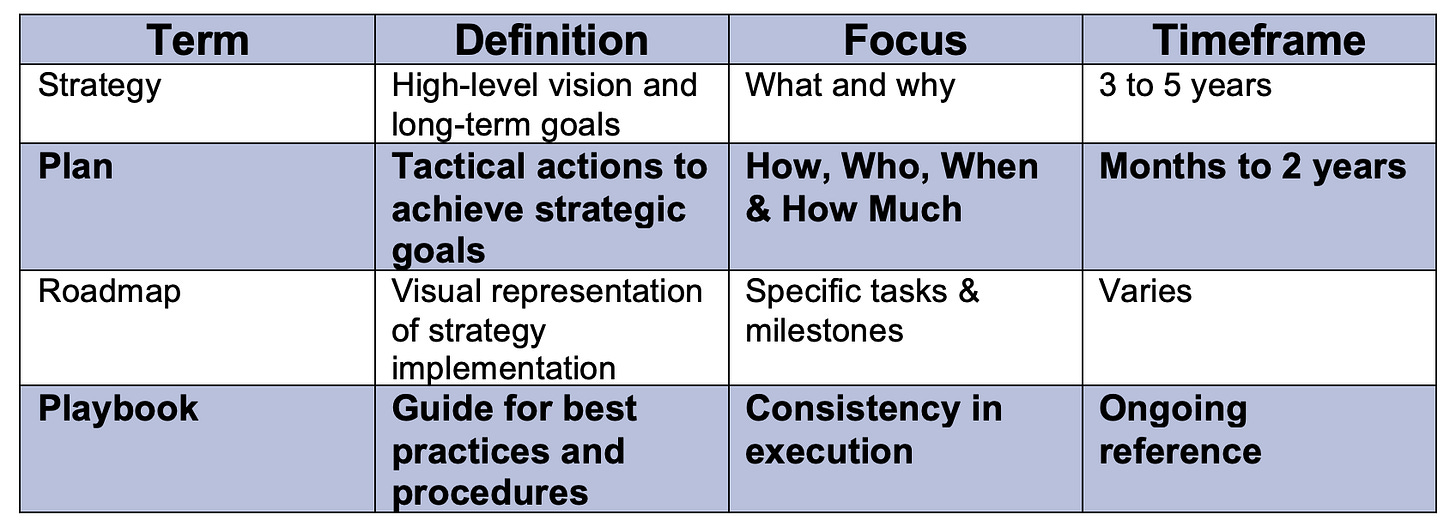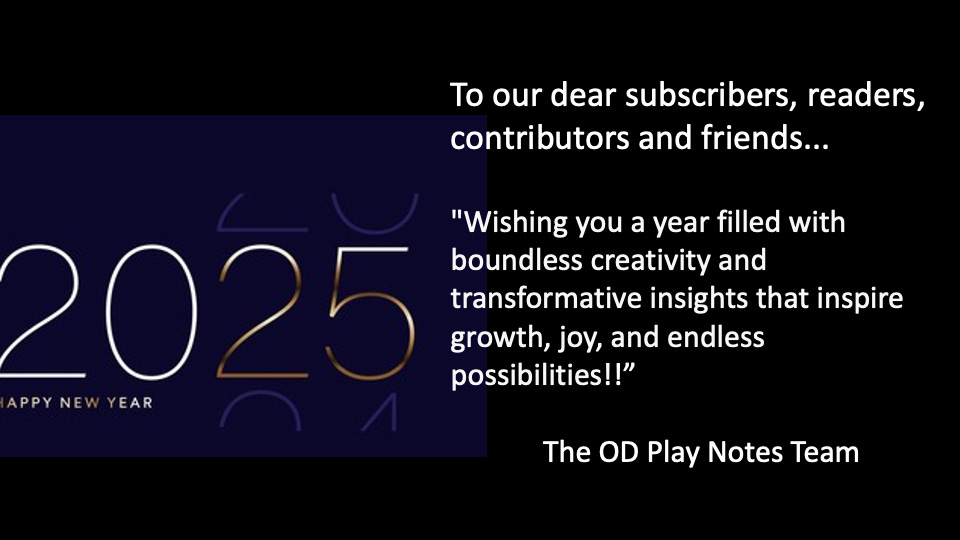Reflect, Assess, and Prepare
As the 2025 ushers in, it’s an opportune moment for OD practitioners to reflect on their organizations’ forays into artificial intelligence (AI). Many smaller organizations embarked on their AI journeys last year. A moment of reckoning. A time to assess the tangible results. What worked? What didn’t? Which challenges remain unresolved? And what opportunities are still untapped?
Last year’s journey may liken the AI to a child with the freedom to explore a vast library—initially consuming as much text as possible. And learning to test how to communicate with humans in their natural language. Next year, this same child will expand their horizons. It will open the doors and start venturing into images, videos, sounds, oral communications and even action. A few optimists even predict that this child will jump into an empty sardine can and magically transform into a humanoid. In the near future, investments in AI will continue to rise. Even if many organizations have yet to see a clear return on investment. To bridge this gap, they must prioritize upskilling their workforce and scaling AI initiatives thoughtfully. An evolutionary process that underscores the need for more granular planning.
The Case for an AI Playbook
Organizations now face a critical juncture: determining whether their AI experiments are ready for broader implementation. Key questions to consider include:
- Will AI be the centerpiece or a complement to our critical processes?
- What type of AI best suits our needs?
- Which AI software aligns with our goals, and which do not?
- Should we leverage self-developed AI tools?
Answering these questions requires a well-crafted AI playbook—a comprehensive guide that ensures consistency and alignment in AI adoption. Unlike traditional OD tools, a playbook provides actionable guidance, templates, and case studies to support effective execution.
Strategy, Plan, Roadmap, and Playbook
While strategies set direction and roadmaps outline tasks, a playbook ensures teams have the tools and guidance needed for consistent execution.
Building an AI-Ready Organization
Integrating AI effectively requires a structured approach. Defining clear objectives is the first step. For instance, a retail MSME might aim to reduce inventory waste by 20% using predictive analytics. Once objectives are established, gathering relevant data becomes crucial. A logistics firm, for example, can optimize routes and reduce delivery costs by consolidating and analyzing delivery data.
Investing in skills and training is equally essential. Workshops on AI basics for non-technical employees can prepare the workforce to adopt new tools and workflows. Governance frameworks also play a pivotal role, such as forming AI councils to oversee projects, ensure ethical compliance, and safeguard data privacy. Additionally, adopting cloud-based solutions for scalable data storage and processing can provide the necessary infrastructure.
Starting small and scaling gradually is a prudent strategy. For example, piloting chatbots for customer service in one region allows for fine-tuning before nationwide implementation. Measuring performance through KPIs, such as customer satisfaction scores, ensures continuous alignment with objectives and actionable insights for improvement.
AI Governance: A Cornerstone for Responsible Adoption
Responsible AI adoption requires robust governance structures. Key elements include:
-Operational Controls. Develop frameworks to ensure transparency and accountability.
-Ethical Guidelines. Implement measures to make AI systems safe, reliable, and non-discriminatory.
-Stakeholder Engagement. Involve diverse perspectives to shape inclusive AI policies.
Actionable Insight
On a local GenAI host, create an AI playbook prompt designed to empower your organization. Start by engaging the AI in crafting a clear, structured outline. Next, dive deeper by prompting it to elaborate on critical topics relevant to your organization's goals. Finally, evaluate potential risks and pivot points to ensure a robust and adaptable playbook. Once complete, share your results with colleagues and peers to foster collaboration and innovation.
An AI playbook isn’t just a document—it’s a roadmap to success. By weaving together vision, governance, and actionable steps, Organizational Development practitioners can lead their organizations toward impactful and responsible AI adoption. As you gear up for the challenges and opportunities of the year ahead, consider this: Is your organization ready to harness AI’s transformative power? Take the first step today.
NOTES
ED CANELA’s COURSES
AI4 Publishing Industry. 2nd Cohort on Jan 9 and 10, 2025 by special invitation only.
Strategic Leadership and Innovation in a Globalized Digital Era for Drucker Leadership Academy (DLA, Nepal) and Pamantasan ng Lungsod ng Maynila (PLM), Philippines, for Nepali Business Executives, Leaders and Medical Practitioners, February 10–13, 2025.
Association of Development Finance Institutions for Asia and the Pacific (ADFIAP) AI, DFIs, Climate Change and You. March 24-28, 2025.






